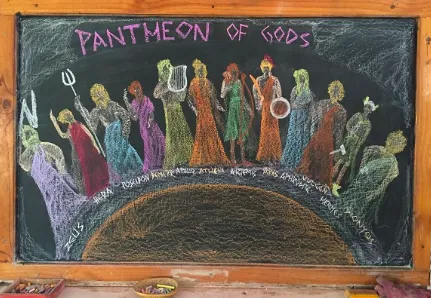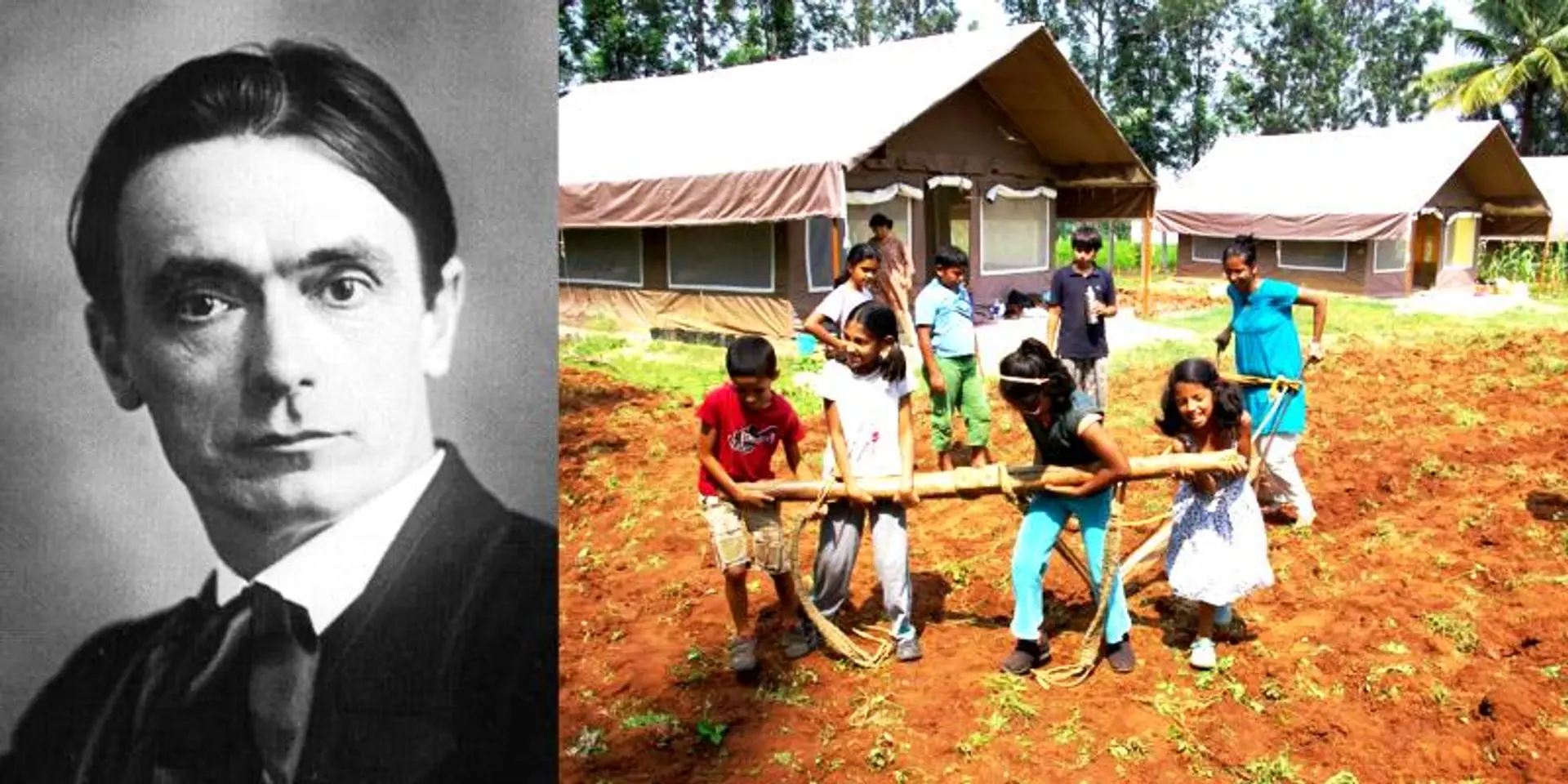Following the philosophy of Rudolf Steiner, these schools are spearheading alternative education in India
The Waldorf Curriculum aims to not only focus on a child’s physical and mental development, but also explores the connection between the soul and the spirit.

In an era where the Indian education system is largely defined by competition, ranks, scorecards and rote learning, students are introduced to comparative assessment at an early stage of primary education level itself. Training for IIT-JEE, AIEEE and various other pan-Indian competitive exams often begins in middle school. And thus begins the cycle of self-assessment through ranks and marks which puts immense pressure on students, who are driven to take extreme measures—at times contemplating and even committing suicides— if they score low or fail to get admissions in India’s premier colleges.
The suicide rate among students is alarming, with the National Crime Records Bureau 2015 report suggesting that 15 suicides took place every one hour across the country. The number of student suicides stood at 8,934.
Soujanya Ganig, National Programme Coordinator for Mission Possible at World Federation of United Nations Associations (WFUNA), says,
We need to make liberal education the norm and not the exception—so that along with benefiting from an interdisciplinary education, students are also under less pressure to make crucial life decisions at 15.

There is a need to create an ecosystem where students are introduced to a holistic education that places an onus on their curiosity and imagination with a multi-disciplinary approach to learning. With this school of thought, German philosopher Rudolf Steiner, in 1919, founded the Waldorf school model which relied on a system of continuous qualitative assessment instead of regimented exams. In his book, The Child’s Changing Consciousness, Steiner explained:
Essentially, there is no education other than self- education, whatever the level may be. Every education is self-education, and as teachers we can only provide the environment for children’s self-education. We have to provide the most favourable conditions where, through our agency, children can educate themselves according to their own destinies.
Steeped in the Anthroposophy school of thought founded by Steiner, the Waldorf education model stresses the need to incorporate local cultures into daily routines. The Waldorf curriculum aims to not only focus on a child’s physical and mental development, but also explores the connection between the soul and the spirit.
The Anthroposophical Society in India states, “The understanding of the three-fold human being, as expressed in the soul forces of thinking, feeling and doing (will-activity), forms the basis of this education.”
Below are few of the educational institutions in India which follow the Waldorf school model.
1. Sloka, The Hyderabad Waldorf School

Launched by the Education Renaissance Trust, 19 years ago, this school is based in Hyderabad and boasts a strength of 625 students, 45 teachers, and 30 support staff members. Being one of the first few Waldorf school, the curriculum has been Indianised to meet the needs of children and their local environment. Children are taught classical Indian dance and music and the school strives to foster an inclusive community by opening doors to students and staff of all races, ethnicities, nationalities, religions, socio-economic backgrounds, sexual orientations, and spiritual values.
The school says that they believe in nurturing curiosity, hence, they try to imbibe creativity and independent thinking; they refuse to adhere to a unidimensional approach towards students. The school was, however, recently charged by the Hyderabad Schools Parents’ Association (HSPA) for collecting exorbitant capitation fee illegally.
2. Abhaya School

Founded in June 2002, Abhaya stands unique as it was founded by a group of parents and teachers who questioned the rote learning advocated by the other educational boards. As the name suggests, the aim of this institution was to break free from the shackles of prescribed pattern of learning.
Situated in Rangareddy district, Hyderabad, the school believes that excellence can be attained through self-motivation, and intelligence is a result of the synergy among the heart, the head, and the hands. The curriculum integrates arts, sciences and humanities, in an age-appropriate manner, with the aim to nurture the natural developmental stages of the child.
3. Prerana Waldorf School
Prerana, meaning ‘sublime inspiration’, offers an education model which allows young children to be children rather than forcing them into an accelerated intellectualism. This co-educational school founded in 2001, incorporates music, arts and outdoor play in its prime teaching method. With the aim to imbibe multi-sensory and experiential learning, and academic excellence without high-stakes testing, the Hyderabad-based school believes in creating an experiential learning environment for students.
For instance, through athletics and pageantry that mirror the mood and events of the original Olympic games, the fifth-grade students study the history of ancient Greece.
4. Bangalore Steiner School

With an aim to encourage students to seek the truth, think consciously, feel compassionately and engage actively with the world, the Bangalore Steiner School was founded in January 2011. The main objective of this co-education school is to realise the goal of a sustainable community. Further, the primary attraction of this school lies in its unique student-teacher relationship. A single class teacher is responsible for a batch of students for a continuous period of seven to eight years, ensuring that the teacher guides the students by monitoring the child’s talent according to individual psyche.
5. Inodai Waldorf School
This Mumbai-based school’s core belief is that education must lead to the inner development of the child. Using the varying tools of imitation and imagination—such as storytelling, puppetry, games and finger plays, beeswax modelling, nature walks, baking and cooking—the school aims to prepare the child for future life experiences.
In Sum
The Waldorf school of thought has gained a wide appreciation and acceptance among parents and teachers over the past decade. Steiner schools are mushrooming rapidly today across the country with the hope to change the narrative of education by focussing on holistic learning as opposed to the traditional education boards.







